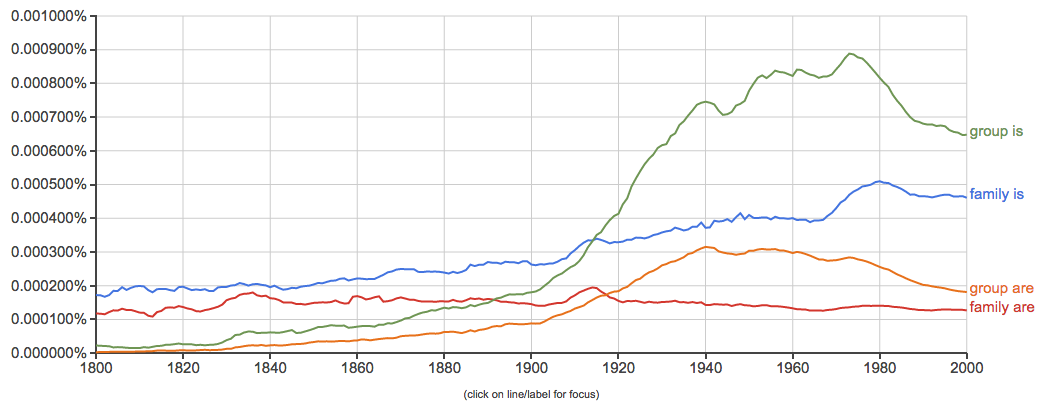I believe what is happening is created by the fact that group nouns can be understood as plural nouns by some English speakers. This is less common nowadays, though I believe it persists in the UK to some extent:

Usually this means that the group noun is considered to be composed of multiple members, rather than there being many of that noun.
However, in the case of "friends and family of users" a singular reading doesn't work. I believe that we instead process a plural reading with the understanding of what is plural widened in scope: instead of the group being plural because there are multiple members, we understand it to be plural because there's more than one of them.
You can see this phenomenon in other, less stereotypical phrases:
You can use cows' branding to identify the farms and herd of cows.
I know that the protecting the identity of users is important.
You know the genre of band of musicians by the music they play.
There's no appreciable difference beyond the the fact that we're forcing a widened plural reading onto family in "friends and family of users".

